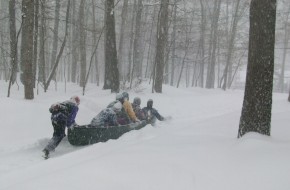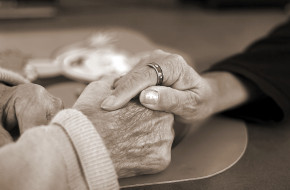My 14-year-old daughter randomly shared this thought with me while we were driving last night….
Mom, isn’t it amazing how one tiny snowflake that falls from the sky joins with all the others and creates these huge piles of snow? It’s just amazing.
I agreed with her and then jokingly said, “I’ll bet there’s a life lesson in there somewhere, but I’m too tired of all this snow to think what it might be.”
Later that evening, the lesson dawned on me. Throughout the last few days I’ve heard stories of people joining forces to help others during and after the massive snowstorm that hit our region. Many of those people are my coworkers. Alone they could do only so much, but like those snowflakes, they combined their efforts and the results multiplied into something amazing. Just a few examples:




